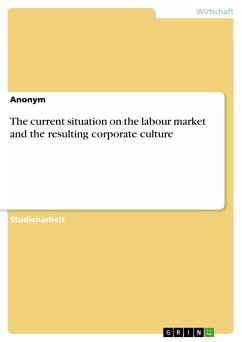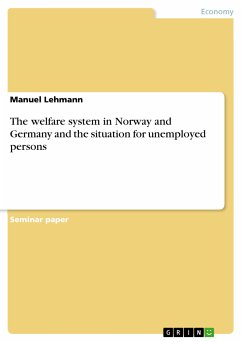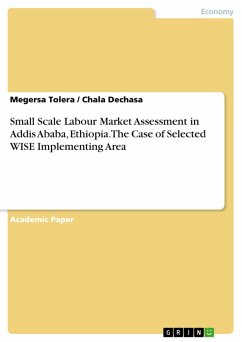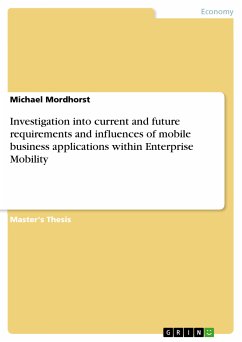Studienarbeit aus dem Jahr 2018 im Fachbereich VWL - Arbeitsmarktökonomik, Note: 2,0, , Sprache: Deutsch, Abstract: This research paper deals with the current situation on the labour market. Furthermore it will show how corporate culture is designed nowadays to meet the demands of employees. To get a first impression the first chapter will introduce the topic. Further the goal and the construction of the research paper are clarified in that chapter. The second chapter will give an overview about the current situation on the labour market. The goal is to explain the topic in detail and reflect factors that have changed. Few of the many are the lack of specialists, the demographic change and the change of values. Chapter three will illustrate the corporate culture starting with its defintion. Afterwards different parts of corporate culture will be examined and described such as how a company can create a workspace and work atmosphere that will attract employees. This includes flexible work time models, diversity management, culture of learning and team work. The research paper ends with chapter four which sums up the most important findings of this document. The economy is booming, the unemployment rate is lower than ever before, we are becoming more mobile, the labour markets are more transparent and more global, the values are shifting and the demographic change can no longer be averted. At the same time products are becoming more interchangeable and people with special abilities and creative ideas are becoming an increasingly important sucess factor. The economy is in transition. But where does this change lead to? All these factors cause that companies are struggling to find employees and need to change their corportate culture. Especially for skilled employees and executives the competition is becoming more and more important and tougher. The balance of the power in the labour market has changed. While companies could choose their employees in the past, employees can now choose which company they want to work for. Companies must adapt to these new conditions and present themselves as an attractive employer. To achieve this, small measures such as employee benefits are no longer sufficient, but the entire corporate culture must be questioned and reorientated.
Dieser Download kann aus rechtlichen Gründen nur mit Rechnungsadresse in A, B, BG, CY, CZ, D, DK, EW, E, FIN, F, GR, HR, H, IRL, I, LT, L, LR, M, NL, PL, P, R, S, SLO, SK ausgeliefert werden.









